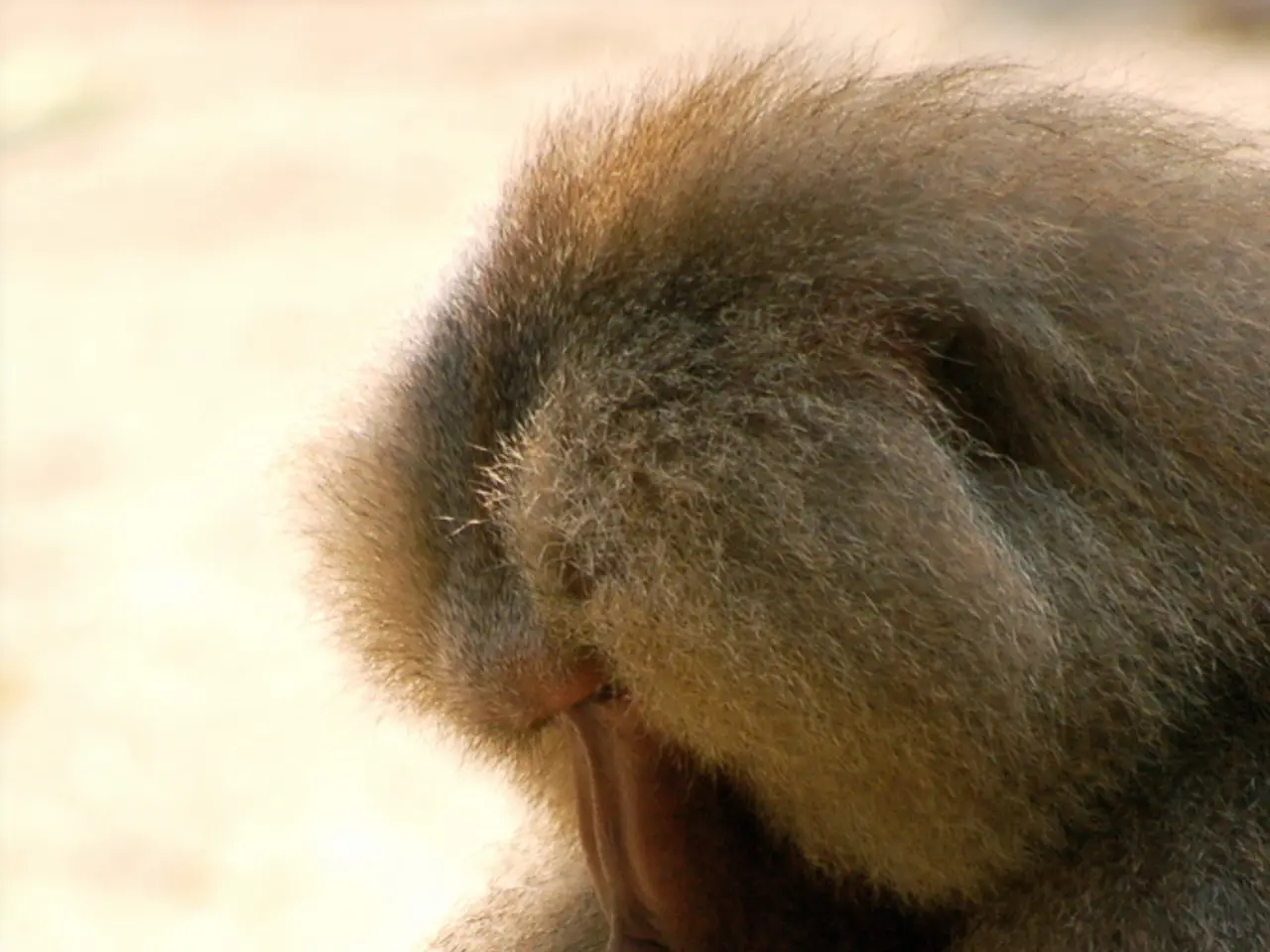Orangutans Rest Following a Tiring Night
In a groundbreaking study published in the journal Current Biology, researchers have discovered that orangutans in the wild, much like humans, take daytime naps to make up for lost sleep at night. This finding sheds light on the evolutionary roots of sleep in great apes and offers insights into the restorative functions of napping in these intelligent creatures.
The research, led by Alison Ashbury, was conducted over a period of 14 years at the Suaq Balimbing Monitoring Station in Sumatra, Indonesia. The team tracked the sleep and napping patterns of 53 adult orangutans, observing their behaviour in the wild.
Orangutans typically build a sleeping nest high in the treetops each evening, weaving branches together and adding leaves for comfort. These nests function like a bed with a mattress and pillow, and mothers share nests with their babies, but adult orangutans usually sleep alone. On average, they sleep for nearly 13 hours each night, although this can be disrupted by several factors such as cold nights, proximity to other orangutans’ nests, and how far they traveled during the day (longer travel corresponds with shorter sleep periods).
When they do not get enough rest, orangutans lie down in a day nest and nap, helping them reset both physiologically and cognitively. Orangutans take at least one nap on 41% of observed days, with naps averaging about 76 minutes. These daytime naps occur in simpler, quickly built day nests that still offer stability and security but are less elaborate than nighttime nests. The frequent daytime napping is thought to compensate for nights with poor or shorter sleep.
Meg Crofoot, co-author and director at MPI-AB, emphasizes the importance of studying sleep in the wild to understand the evolutionary origins and ultimate functions of sleep. Short naps can have significant restorative effects in humans, and it's possible that these naps help orangutans reset physiologically and cognitively after a poor night's sleep.
The study's findings contribute to a growing field of sleep studies and Crofoot hopes it inspires more sleep studies to step out into the wild. The high propensity for daytime nest use among Suaq orangutans may be linked to their need for high-quality naps to meet their cognitive demands, or their cognitive abilities may come about because they take high-quality naps in day nests so often.
Until now, no studies have focused on how orangutans cope with sleep deprivation and getting enough rest. This study aims to broaden our understanding of how sleep, including human sleep, evolved. As Crofoot notes, "Understanding the sleep patterns of our closest relatives, the great apes, can help us better understand the evolution of sleep in humans."
The research, led by Alison Ashbury, has revealed that orangutans take daytime naps to make up for lost sleep at night, just like humans do, suggesting a connection between our sleep patterns and those of great apes. This study, conducted over 14 years at the Suaq Balimbing Monitoring Station in Sumatra, Indonesia, focuses on understanding the evolutionary origins and ultimate functions of sleep, including its restorative effects on mental health and cognitive functions.






